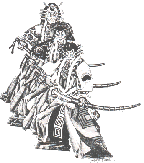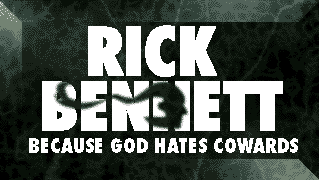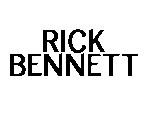
HOW DO YOU KNOW IF YOU SHOULD CALL ME?
I treat all my clients as if the money they're spending with me is the last money they have on earth, and if we fail then they're probably out of business. I specialize in high-technology, tear-out-your-throat advertising. With all due respect to mythology, my three muses are warriors, not prancing nymphs. My gallery of ads, and even the stuff my clients didn't have guts enough to run, should indicate whether or not we'll hit it off.
FAST, GOOD, CHEAP. TRADITIONAL AD AGENCIES OFFER YOU ANY TWO. WITH ME YOU GET ALL THREE OF MY SAMURAI MUSES.
Normally, an ad agency offers two of the above options. You want it fast and cheap, it ain't gonna be so good. You want it good and cheap, measure time in seasons. You want it fast and good, be prepared to pay. If you are prepared to let me share in a home run (namely, stock options, warrants, etc.), you can get all three: fast, good and dirt cheap. If I'm still around to vest my options, then we all laugh our way to the bank. How can I do this, while other advertising agencies can't?
Friend and fellow advertising hired gun Paul Pease (now in Beaverton, OR) once wrote his masters thesis on "Why Ad Agencies Get Fired." I met Paul the year I began my one-man agency, and owe him a real debt of gratitude. He listed the two main reasons ad agencies get canned. He didn't know it, but they predict the failure of one business model in favor of mine. The reasons:
1. ACCOUNT TEAM TURNOVER: The account team's job is to protect the "creative geniuses" from the client. Good account reps are hard to come by, and tend to change jobs frequently. The poor client is retraining a new account team every few months, because either the old team got promoted or left the company, or the team is so junior that the client insists upon a change.
2. THEY THINK THE AD AGENCY MAKES TOO MUCH MONEY: With all outside services being marked up by 17.5%, and with media commissions of up to 15%, one teensy weensy creative effort can make an agency hundreds of thousands of dollars.
I've solved those problems, which not only accounts for why my clients get all three samurai (good, fast and cheap), but then also explains why I've been able to maintain extremely long-term client relationships:
1. I AM THE ACCOUNT TEAM AS WELL AS THE CREATIVE TEAM. Rick Bennett has no employees. Of course, this has several disadvantages. When you throw out one of my ideas, you have to work hard not to hurt my feelings, and I have to work hard not to insult your mother to your face. But if the chemistry is right, I'll go away and come up with better ideas than the ones your turned down. And you can have confidence that I haven't plagiarized the next ideas from those discarded by another client.
2. UNTIL MY STOCK OPTIONS VEST, THE ONLY MONEY I MAKE IS A CREATIVE FEE: All outside expenses incurred are billed to you at cost. In fact, where possible I have the invoice sent directly to you. I make no media commissions. Instead, I instruct the publications in which you advertise to bill you "net," which means the 15% commission is passed on to you. And after we agree on my creative fee (usually $5,000 per ad, always paid in advance), I'll keep giving you creative concepts until you decide on one you like. I learned this last part from my mentor, the man who taught me everything I know about go-for-the-throat advertising: Tony Schwartz. Tony is the genius who created the famous Daisy ad that destroyed Barry Goldwater's presidential candidacy in 1964. The commercial aired just one time -- on CBS -- yet so perfectly portrayed Goldwater as the one most likely to "push the nuclear button," that nothing could save him. I hired Schwartz when I was part of a four-person steering committee assigned by Massachusetts' high-tech companies to pass a tax-limitation initiative in 1980. During the process, Tony and I became friends, and he taught me how to kill for a living [our initiative passed with 60% of the vote!]. In any event, I DO MAKE SOME SERIOUS MONEY if you've kept me around long enough for my stock options to vest. Then we ALL have a great payday.
It's a good thing I didn't win my 1978 race for the US Congress -- I sold the electronics company I founded and used the proceeds to try and "buy" a congressional seat -- because I wouldn't have gone into advertising and I wouldn't have met Tony. Of course, quite a few of my clients' competitors would gladly contribute to my political campaign now, just to get me out of their hair. Genghis Khan is alive and well, and regularly riding a different kind of steed across the windswept planes of technological desolation.

